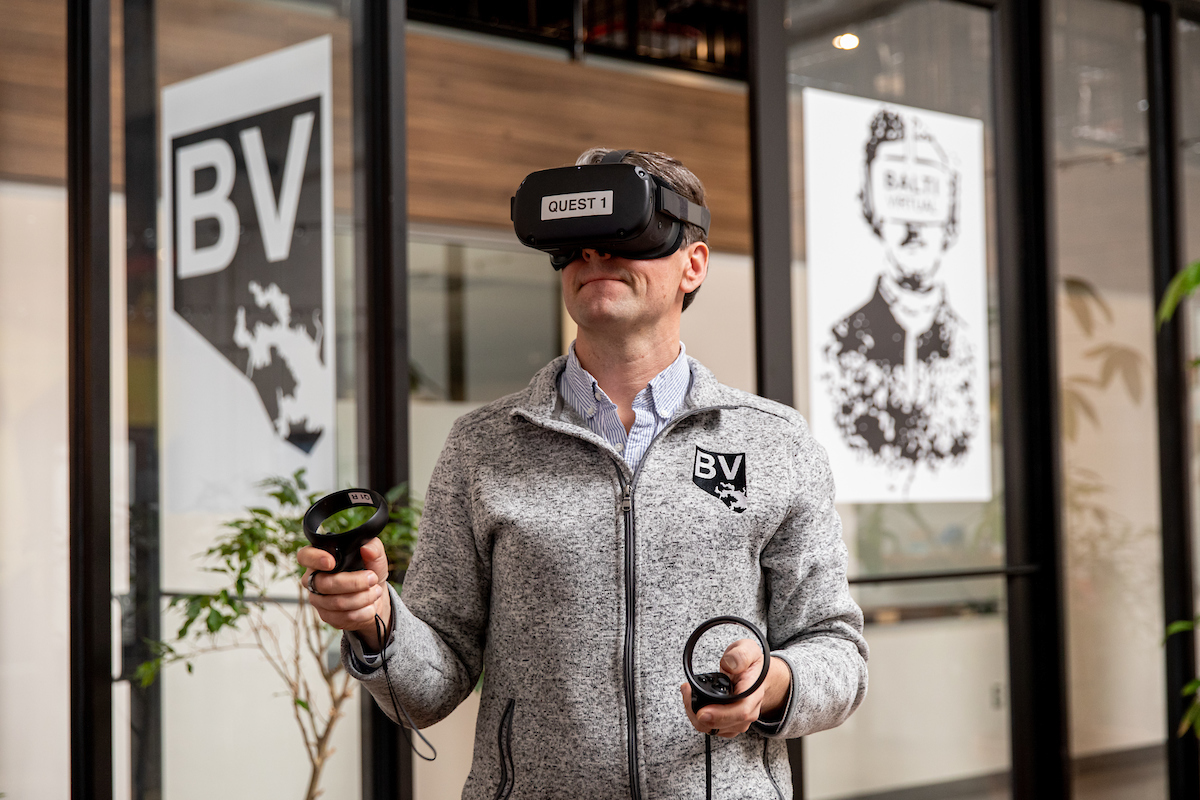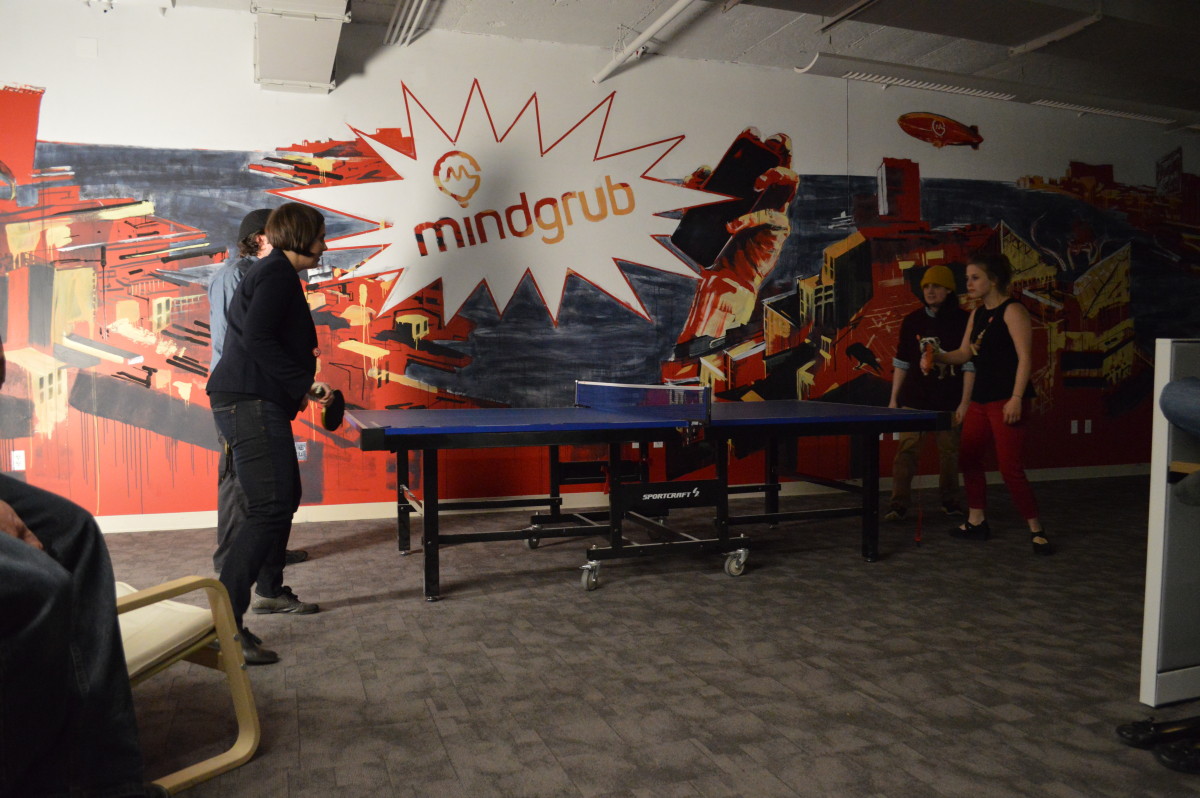In Maryland, there are hints that reopening could begin soon.
Last week, Gov. Larry Hogan said data that showed a decline in new hospitalizations and ICU admissions for COVID-19 meant that the state could begin taking some initial reopening steps. The first moves in Hogan’s plan were to restart elective surgeries at hospitals and allow some parks and beaches to reopen. But the steps were done gingerly. Social distancing and masks will still be with us, and even as Hogan held out the idea of beginning “stage one” of recovery and reopening some businesses this week, he added that he could also scrap those plans if data changes.
It’s a delicate balance, with health and safety potentially at stake. But as the curve flattens, there will also be a move toward restoring some semblance of normalcy to businesses that have been rocked.
Business leaders also must consider how, when and even if they’ll reopen offices. Among the group of startups and tech agencies that form a still-growing part of Baltimore’s business community — and echoing the moves of tech giants such as Facebook and Google — there’s also less of a need to head back in immediately.
Folks have transitioned to working from home and are continuing the work of building companies and growing culture, even though lots of standups and whiteboarding sessions now take place on Zoom. Still, the open and collaborative concepts that technologists have embraced have often been synonymous with the future of work, so we figured it would be worth checking in to see about how they’re thinking about how floor plans will be remade in a pandemic.
Let’s be clear: There’s no sign of offices reopening yet. And it should be noted that, above all, that safety is paramount is decision making. Companies are following the lead of the public health and government leaders that are making calls about whether to reopen non-essential businesses.
“We miss seeing each other in person and miss the terrific office environment,” said Daniel Freedman, co-CEO of Pikesville-based streaming health and fitness company BurnAlong, which raised a fresh $4 million in capital this week. At the same time, Freedman said, his team is following guidelines from the state and the CDC about businesses and gatherings. “We definitely don’t want to do anything that’s going to put people at risk.”
With restrictions likely to be eased rather than dropped, there’s also the reality that those guidelines may require different kinds of approaches than we saw before. So while the company has been kicking around a few ideas, it doesn’t want to get ahead of the health experts. “There’s an element of waiting to see what guidance is offered,” he said.
Under Hogan’s plan for reopening, the soonest most nonessential businesses would be able to reopen is “step two.” And even then, there will be restrictions in place. So company leaders are already considering how they’ll go about reopening the office at a time when social distancing restrictions are likely to still be in place in some form.
As baseline, understanding potential risk of the virus spreading is important. This week, the Center for Health Security at Johns Hopkins’ Bloomberg School of Public Health released a toolkit to guide businesses through a four-stage process that helps folks understand the risk of transmission.
Mindgrub CEO Todd Marks said there’s “no reason” for the tech and creative agency to rush back to its Locust Point office. Given continued worries about contracting the virus and the phased nature of the recovery, he doesn’t foresee a sudden return anyway. Besides, the company made sure operations were fully cloud and mobile-based even before the pandemic, and Marks said the team has been effective in a remote environment. It is even continuing to grow during the pandemic.
Still, the office has become an important part of the company’s culture, and conversations are starting about how to return at a time when social distancing restrictions are likely to remain.
“We want to get back to our office,” he said. But when the team does, “it’s going to look different.”

Mindgrub’s Locust Point office. (Courtesy photo)
When the time does arrive, preparation will be one step. Mindgrubbers will have a chance to box up their stuff, then the office will get a deep cleaning over a weekend, including wiping down surfaces.
They will arrive to find lots of hand sanitizer stations and masks available to wear. Not everyone will return at once, as schedules will be broken down into A-B days to allow for distancing, Marks said. They’re also planning for how common spaces are used, with half of the chairs removed from the conference room and doors that are specifically “in” and “out” rather than two ways. And not all of the amenities will be open: The climbing wall will be off-limits.
With reopening starting to enter the conversation, companies that were making a sudden switch to remote work two months ago are now considering how to reopen. Along the way, they’ve been collecting feedback from employees on how remote work has been progressing. And some of what was introduced during the pandemic may survive into the future.
At Port Covington-based Balti Virtual, it turns out that the new WFH arrangement hasn’t been too big of a strain. The consensus as it talked to employees was that folks like working remotely, said CEO Will Gee.
In the context of the pandemic, some moves made earlier this year are taking on new meaning. The augmented and virtual reality agency moved into a new space at City Garage that doubled its size to 5,500 square feet earlier this year. It also now has desks with wheels that can moved as needed. Now, Gee said being more spread out will help with distancing, and make things easier to reconfigure.
“This time around we’ll have a little bit more space so we can spread out a bit,” Gee said. “It’s still early days, but I think when we reopen we’ll be in a good spot for it.”

Balti Virtual is based in Port Covington’s City Garage. (Courtesy photo)
With such decisions, businesses are ultimately planning for the future. So as Mindgrub is looking ahead to a summer where parents will need flexibility to work from home when summer camps are canceled, it is also planning ahead for growth long term. In an internal survey, Mindgrub found that about half of employees wanted to work remotely, half of the time. So the A and B days that get implemented now could stretch even beyond the time when there’s a vaccine.
“We are rethinking everything in the future,” Marks said.
Being in a place where growth is continuing, that also includes how it adds new space. Along with the HQ in Baltimore, the company is exploring real estate that will allow it to set up spaces with lounge-style areas and hoteling desks in areas where it has client relationships outside the city. In that scenario, not everyone would have to report every day, but it would be available for work and meetings. Plus there’s space to hang out.
It is starting this “Mindpub” concept with a space that it purchased near the central office on Fort Avenue, and Marks sees the model expanding in places like Towson, Columbia and on into the D.C. area.
Mindgrub developed a strong office culture after opening the Baltimore city HQ in 2015 and now has clients in half of the states and employees in a dozen of those, so the company had been making moves to improve the culture for remote workers. Now it’s looking to be an “employee-centric company focused on growing outside of office borders.”
“I think a lot of what we were doing set us up to roll right into post-COVID Mindgrub,” Marks said.
Join the conversation!
Find news, events, jobs and people who share your interests on Technical.ly's open community Slack

Baltimore daily roundup: An HBCU innovation champion's journey; Sen. Sanders visits Morgan State; Humane Ai review debate

Baltimore daily roundup: Medtech made in Baltimore; Sen. Sanders visits Morgan State; Humane Ai review debate

Baltimore daily roundup: The city's new esports lab; a conference in Wilmington; GBC reports $4B of economic activity


